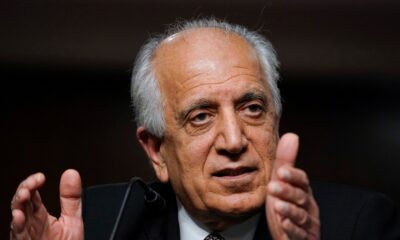Latest News
Khalilzad heads to Doha carrying message of ‘participatory govt’ to Taliban
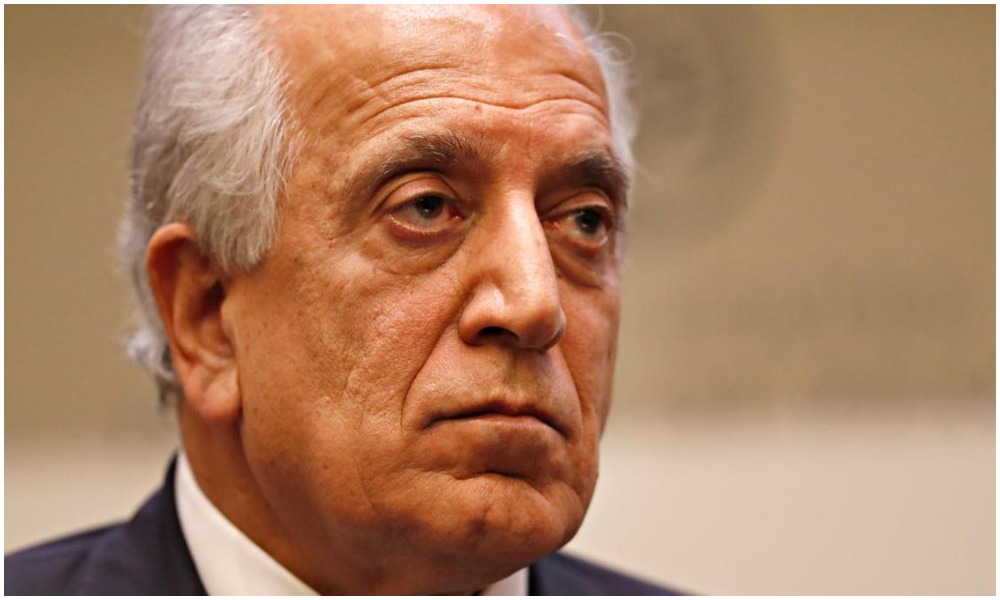
US special envoy for Afghanistan peace Zalmay Khalilzad headed to Doha on Thursday where he will share details of his Kabul trip with the Taliban.
This comes after Khalilzad held a meeting with Afghan lawmakers while in Kabul, where he suggested the Constitution be amended so as to form a new government.
Some members of the Wolesi Jirga (Lower House of Parliament) said that according to Khalilzad, there was little hope that the Doha talks will be successful and that instead a larger summit on the future of Afghanistan is being considered.
“Mr Khalilzad, brought a message that Americans want a participatory government in Afghanistan; when I asked this question, Khalilzad said yes, I brought this message and handed over to the government leaders,” said one MP Ziauddin Zia.
According to sources, other topics discussed over the past three days on the part of Khalilzad included:
• Distrust and ineffectiveness of the Doha talks that are currently underway
• A possible meeting of the country’s political leaders and the Taliban in another country, possibly Turkey
• Contributing countries and UN to monitor such a meeting
• Amending the Constitution in order to form a new government
• The US not being in a hurry to withdraw troops by May
• Advancing the Afghan peace process wisely
Sources said Khalilzad also warned the war would continue if these issues are not agreed upon.
“A few specific statements that he [Khalilzad] pointed out are that the Qatar talks have not achieved anything in the past four months; we don’t have any hope for Doha talks, the country leader must sit in a second country and foreign countries must monitor [meeting] so they reach an agreement; amendment of constitution so the grounds are prepared for a new government,” said Kha Agha Rezaei, another MP.
Khalilzad ended his trip to Kabul after discussing various options, alternatives to propel the process forward and tweeted that the Afghan government and the Taliban must find a path to a political settlement and a permanent ceasefire.
Meanwhile, the US Secretary of State Antony Blinken said Thursday that the country is trying to pave the way for a political agreement between the Afghan parties.
“We haven’t made any decisions about the May 1 deadline to withdraw the remaining roughly 2,500 troops that are in Afghanistan, as well as of course partner troops, NATO forces that are there. We are in very close consultation with our NATO allies, with all of the countries in the region. and what we’re looking at very carefully is what further progress can and must be made on the agreements that, for example, we reached with the Taliban under the previous administration and the Taliban and the government of Afghanistan are working on to see if the conditions can be in place for a durable peace.
“But right now we are reviewing the question of our troop presence and we are doing it in full consultation and coordination with our allies,” Blinken said in an interview with PBS news hour.
Khalilzad will consult with Taliban leaders in Doha and hear their views, but Gulbuddin Hekmatyar, Hezb-i-Islami leader, says preliminary agreements have been reached on an alternative to the Doha talks.
“Now we have to look for an alternative to these negotiations, work is underway, preliminary agreements have been reached, we agree that a new and practical foundation for peace should be laid and not limited to both sides of the war,” said Hekmatyar.
Khalilzad’s meeting with Taliban leaders and members of the government’s peace negotiating team also focuses mainly on sharing, a participatory government plan and an alternative Doha meeting.
Latest News
Three children killed in Pakistani airstrike on Kunar province

Local officials in Afghanistan’s Kunar province have reported that an airstrike conducted by Pakistani forces in Khas Kunar district resulted in the death of three children.
The attack, which struck a return refugee camp in the Hajratabad area, also left another two children injured.
Farid Dehqan, spokesperson for the Khas Kunar police command, confirmed the civilian toll, emphasizing the vulnerability of displaced families in the region.
Zahidullah Fateh, the district governor of Khas Kunar, stated that the airstrike occurred around 8:00 p.m. local time on Sunday.
Afghan authorities have repeatedly raised concerns over attacks by Pakistani forces, warning that civilian areas are increasingly being targeted. Officials note that such operations appear to reflect a shift by Pakistani forces away from direct military engagements toward strikes that disproportionately impact vulnerable populations, including returnees and displaced families.
Human rights observers have condemned the incident, calling for an immediate investigation and urging both sides to respect the protection of civilians under international law.
This latest strike comes amid ongoing tensions along the disputed Durand Line between Afghanistan and Pakistan, where clashes and shelling have become increasingly frequent in recent months.
Latest News
Karzai and Abdullah extend condolences on Khamenei’s death
On his X account, Karzai expressed deep sympathy and condolences to the Iranian government and people.
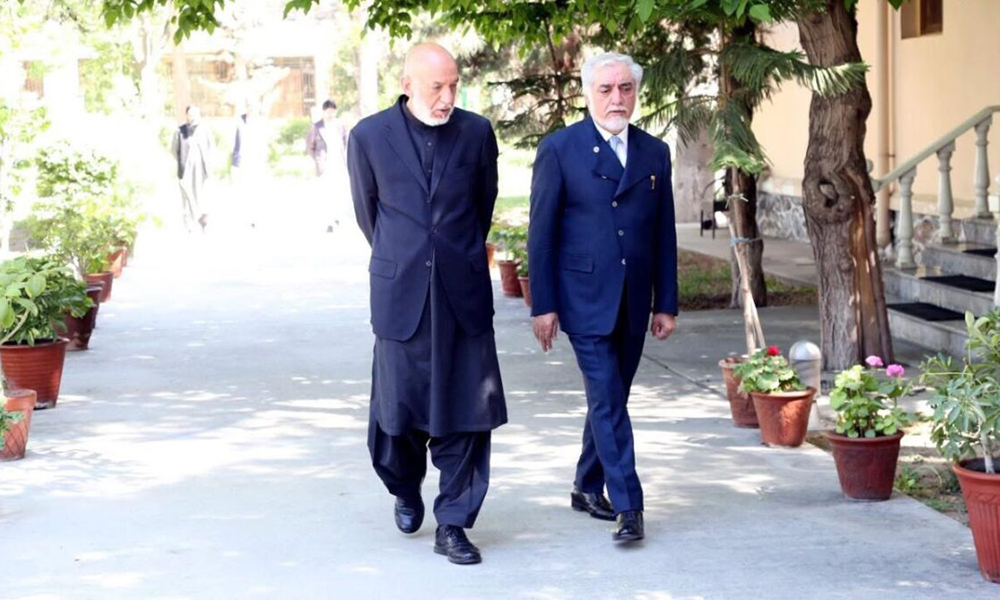
Former Afghan President Hamid Karzai and former head of the High Council for Peace Dr. Abdullah Abdullah have expressed sorrow over the reported killing of Iran’s leader Ayatollah Ali Khamenei.
The United States and Israel reportedly carried out joint attacks on several Iranian cities on Saturday.
Reports indicate that the attacks resulted in the deaths of Iran’s Supreme Leader Ayatollah Ali Khamenei, former President Mahmoud Ahmadinejad, and other high-ranking officials.
On his X account, Karzai expressed deep sympathy and condolences to the Iranian government and people.
He wrote: “I appreciate the continued support of the people of Afghanistan for him (Khamenei) and express my solidarity with the noble people of Iran. I pray for paradise for the martyrs and wish peace, security, and prosperity for our friend and brother country, Iran.”
Abdullah, on his Facebook page, said: “With great sorrow, the martyrdom of Iran’s leader Ayatollah Seyed Ali Khamenei, some of his family members and associates, and the recent martyrs has caused us deep grief.”
He prayed to Allah for patience, endurance, and great reward for the victims’ families and the Iranian people.
Latest News
Khalilzad says Pakistan’s leadership misjudges Afghanistan, urges diplomacy
Khalilzad stated: “Pakistan’s demands from Afghanistan are so unreasonable that even the government of Pakistan is embarrassed to articulate them.”
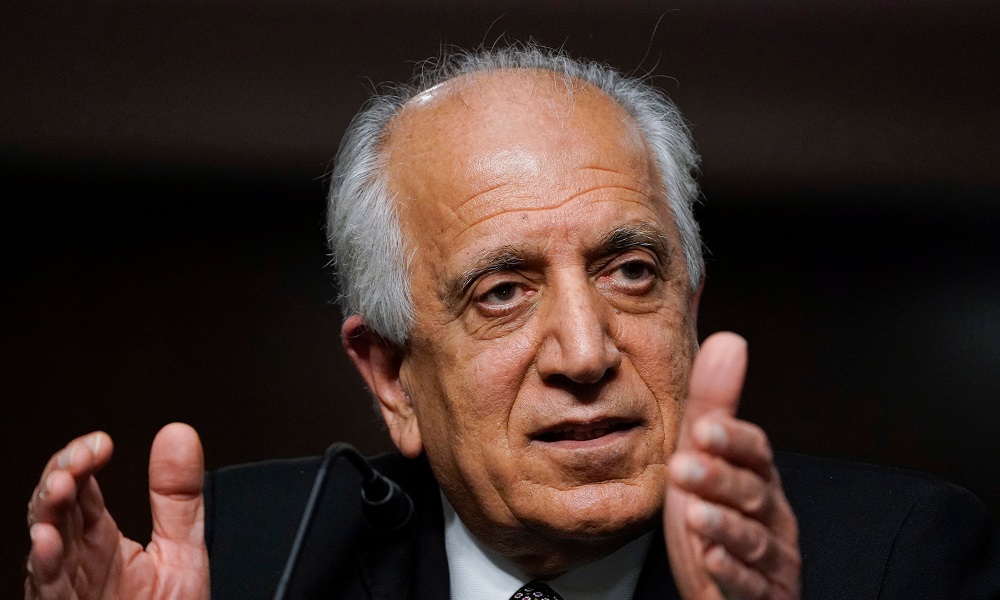
Former US special envoy for Afghanistan Zalmay Khalilzad has criticised Pakistan’s military leadership, saying it fundamentally misreads Afghanistan and wrongly assumes it can force Kabul to accept its demands through military pressure.
Khalilzad stated: “Pakistan’s demands from Afghanistan are so unreasonable that even the government of Pakistan is embarrassed to articulate them.”
His remarks come amid renewed tensions following Pakistani airstrikes on Afghan territory, which Kabul has condemned as violations of its sovereignty.
Khalilzad, who served as Washington’s Special Representative for Afghanistan Reconciliation and played a central role in negotiations leading to the 2020 Doha agreement between the United States and the Islamic Emirate of Afghanistan, argued that the current trajectory risks deepening instability in both countries.
He maintained that coercion would not produce lasting security outcomes.
According to Khalilzad, regional security threats are mutual and require coordinated responses rather than unilateral action.
Tensions between Kabul and Islamabad have escalated in recent months over accusations that armed groups operate from each other’s territory. Pakistan has repeatedly blamed Afghan-based militants for attacks inside its boundaries, while Afghan authorities have accused Pakistan of breaching international norms through strikes.
Khalilzad said diplomacy remains the most viable path forward. He noted that the Islamic Emirate of Afghanistan has expressed readiness to reach a bilateral understanding that would prevent either country’s territory from being used against the other.
“The Islamic Emirate of Afghanistan is ready to reach an agreement with Pakistan to prevent the use of each country’s territory against the other,” he said.
Concluding his remarks, Khalilzad described Pakistan as responsible for the latest escalation and urged both sides to return to dialogue, stressing that sustained diplomatic engagement — rather than force — offers the best chance of reducing tensions and promoting regional stability.
-

 Latest News2 days ago
Latest News2 days agoPakistani military jet downed in Afghanistan’s Jalalabad, pilot captured alive
-

 Latest News3 days ago
Latest News3 days agoAfghan Air Force conducts airstrikes in Islamabad, other cities
-
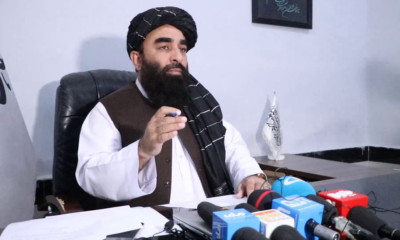
 Latest News3 days ago
Latest News3 days agoIEA: Special circle in Pakistan has launched mission to destabilize region
-

 World4 days ago
World4 days agoIndia’s Modi backs Israel in address at Israeli parliament
-
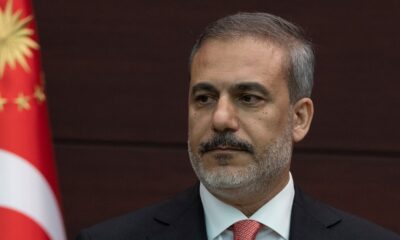
 Latest News3 days ago
Latest News3 days agoTurkey launches initiative to diffuse Afghanistan-Pakistan tension
-

 Regional4 days ago
Regional4 days agoNarendra Modi holds high-level talks after historic address to Knesset
-

 Latest News3 days ago
Latest News3 days agoAfghans say they are united against Pakistan aggression
-

 Latest News3 days ago
Latest News3 days agoPakistan carries out airstrikes after Afghanistan launches retaliatory attacks












